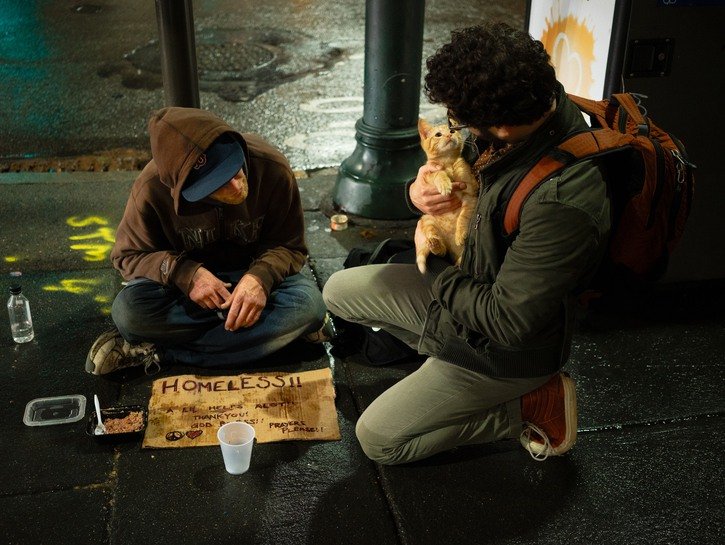Interested in helping those less fortunate this holiday season? There are many different ways you can help the homeless, one of which includes giving them a hot meal. It seems like a kind enough task you can complete without issue, but there are some hiccups you may run into. Our guide will teach you what you need to know before feeding the homeless this year.
Feeding The Homeless Is Illegal In Some Cities

You read that right. The ban has been under fire for years and the reason behind it is still up for debate. Some claim feeding the homeless without a third party company like a food bank spreads STIs between those living on the street. Others claim the ban is nothing more than a means to criminalize homelessness.
Four municipalities have gone so far as to fine and arrest any private groups handing out food to the homeless. Raleigh, North Carolina; Myrtle Beach, South Carolina; Birmingham, Alabama; and Daytona Beach, Florida all outlaw feeding the homeless independently, so that’s something to be aware of.
Put Together Care Packages

Of course, donating food is always appreciated. But you can also put together care packages for those in need, consisting of essential items. How large the packages are is entirely up to you, but they can include items such as:
- water bottles
- crackers or other snacks
- socks
- shaving cream
- toothbrush and toothpaste
- bandaids
- deodorant
- tissues and/or wet wipes
- sunscreen
- chapstick
Shelters suggest you avoid purchasing items like hand sanitizer or mouthwash due to the alcohol content. Anyone suffering from addiction may not use the items for their intended purpose.
Additionally, difficult snacks like granola bars, gum, or trail mix may not be the best items to include. Many homeless people don’t have proper access to dental care, so chomping on tough-to-eat snacks doesn’t do them any favors.
Shop For Them

Sort of like with care packages, you can head out and buy a few important articles of clothing for the homeless. Gloves, hats, socks, and scarves are all terrific items that won’t cost you very much and will help them in the colder months. You can drop the articles off at a shelter, donate them, or distribute them in person.
These aren’t the sorts of items you want to skimp out on, either. Try not to grab them from a thrift store; purchase them new so those receiving them get a longer life out of them.
Don’t Ignore Them

The homeless spend a good chunk of their time being ignored or mistreated. A great way to help this year is simply to chat with them. Acknowledge their presence (and those of any pets) by having a conversation and perhaps offering to buy them something to eat or drink. If they have a pet with them, you could always purchase some food for them as well.
If you happen to see someone you’re particularly worried about, be sure to call your local shelter or the authorities. You want to ensure they’re safe when the freezing temperatures hit, and if nothing else you can call someone better equipped to bring them to a shelter.
Other Ways To Help The Homeless

Not everyone can distribute food to the homeless. If you’re tied up this year, there are several other ways you can give your time and attention:
- Work in a soup kitchen; during the holidays, there are always calls for volunteers. Soup kitchens can always use an extra pair of hands at such a busy time.
- Donating food to shelters; this is the perfect solution for anyone pressed for time this year. Gather some canned or boxed goods and drop them off at your local food shelter. You’ll no doubt see many flyers and advertisements calling for donated food at Christmas time.
- Donate money to shelters; it doesn’t need to be an overwhelming amount, but anything will help.
- Give away some old clothing; if you have some spare clothing lying around the house, you could always drop it off at a bin or to a shelter. Food isn’t the only way to help those in need.

These are just some of the ways you can help the homeless this year. Put together care packages, volunteer your time, or give some fresh meals. Remember the laws in your state to avoid altercations with police. If you’re really concerned about how best to help out, contact your local shelter for more information and resources.
